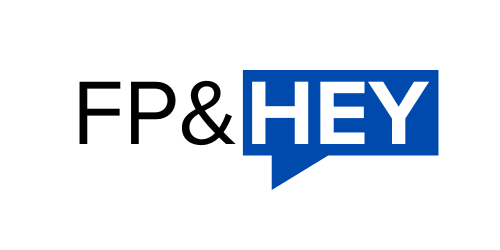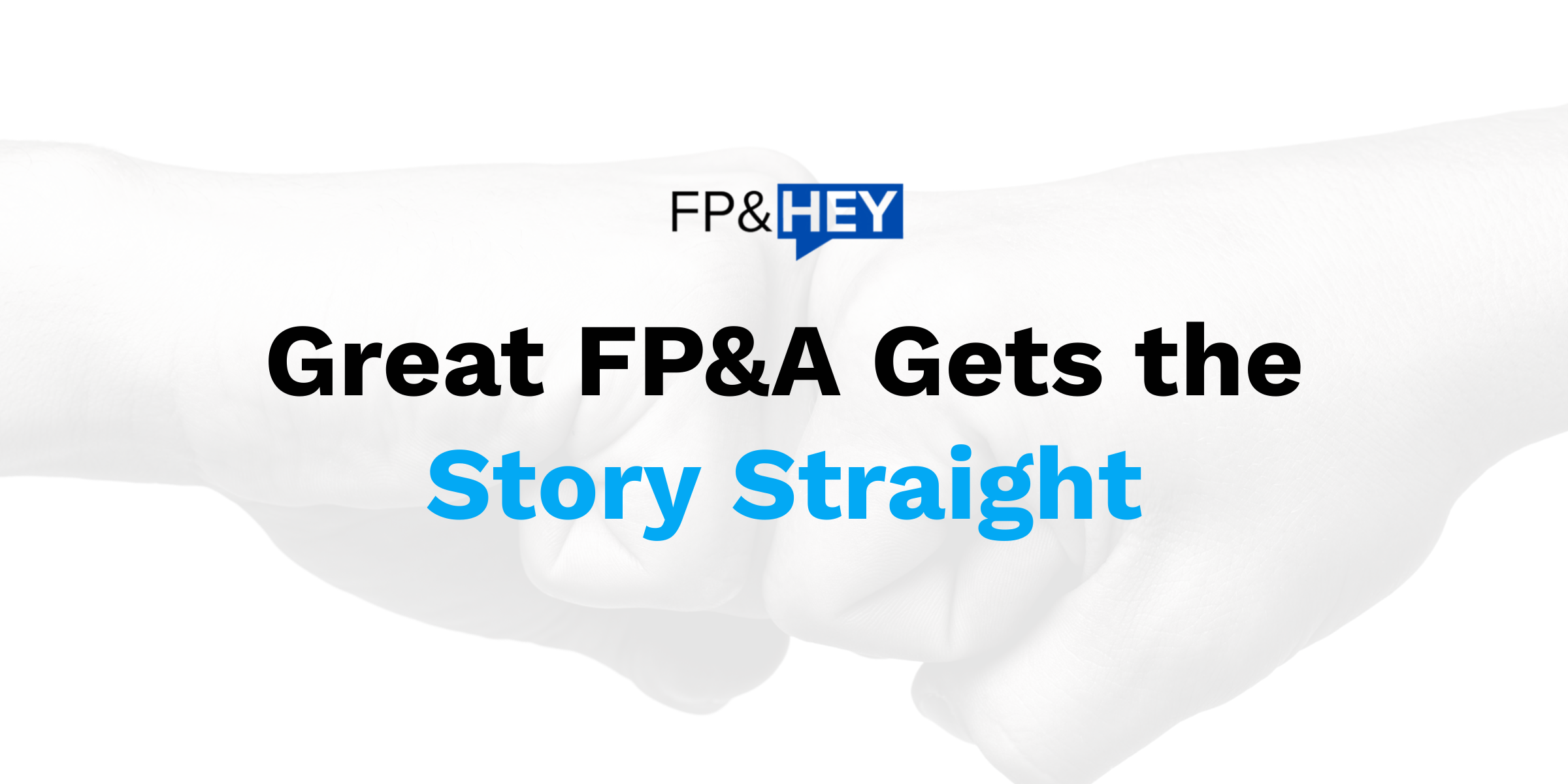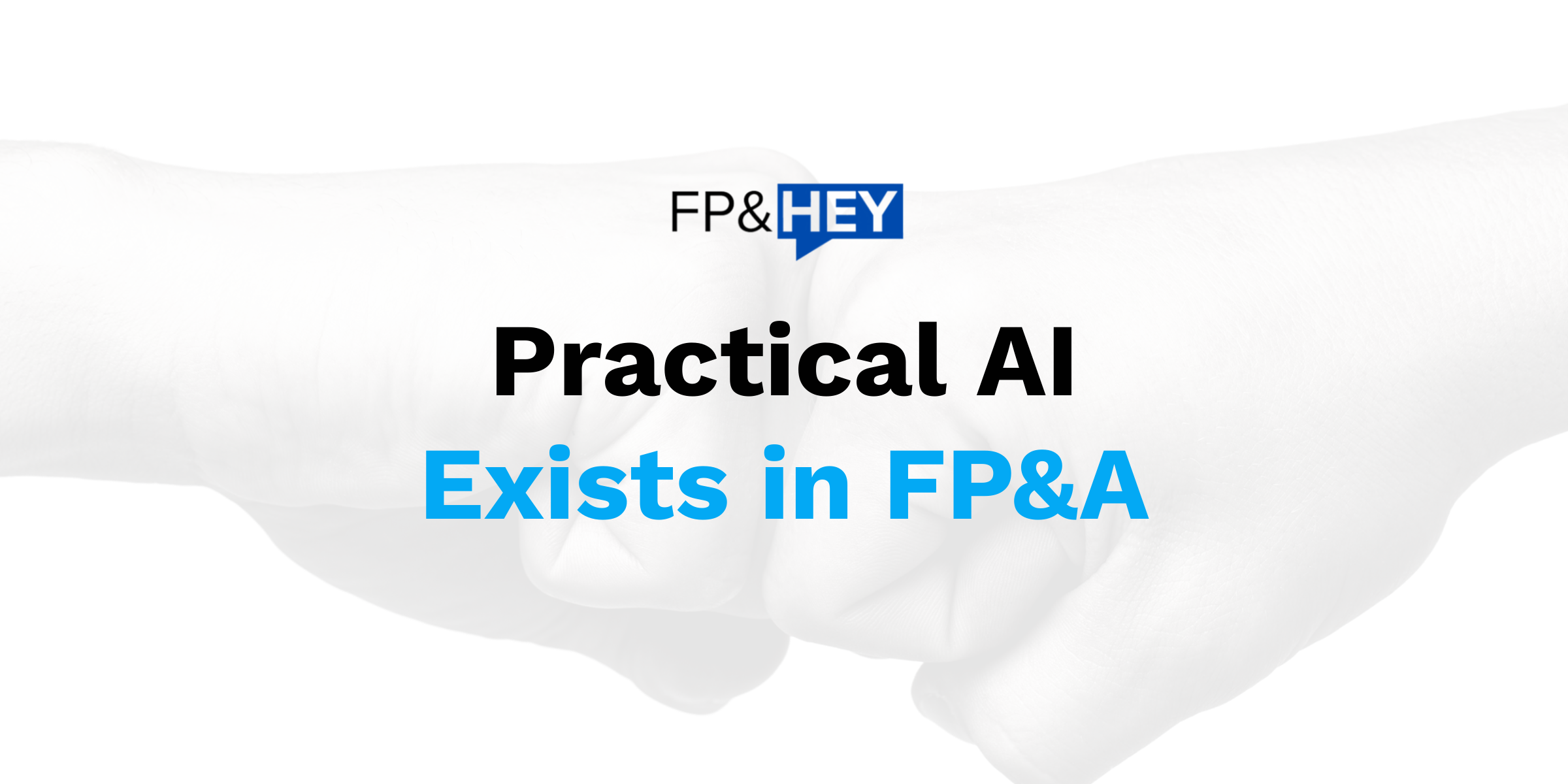Hey there,
Today’s post is on why FP&A is a great career choice.
This post will help you understand 3 things:
- Reasons you should pursue a career in FP&A
- Skills needed to succeed in your FP&A career
- How to launch your FP&A career
There is no one job or career that 100% protects you from uncertainty.
Companies on a whim can say “See you later.” 👋

So what does this have to do with FP&A?
Working in FP&A can give you more job options when you need them.
Do you want more jobs to pick from?
Let’s dive in.
What FP&A stands for
Everybody loves a good acronym.
FP&A stands for Financial Planning and Analysis.
In short, it involves analyzing financial and non-financial information.
The goal is to help predict the future while managing the present to get there.
By working with people to understand their numbers.
Speaking of numbers, there are a number of benefits to an FP&A career.

Top reasons to pursue a career in FP&A
You don’t just choose a career for its awesome acronym.
You choose it to make a living and work on things you enjoy.
As we write this post the following things are happening:
- Jobs are being cut
- Life is getting more expensive
- People are feeling more isolated
Do you feel stress from any of these things?
You’re not alone.
A job or fancy acronym won’t solve all of these issues.
But a job in FP&A can help mitigate some of the stress caused by them.

High demand even in tough times
It’s true, times are tough in the job market.
Cash is tight, borrowing costs are high, and even bank deposits are top of mind.
The results?
Layoffs and labor market uncertainty.

But for FP&A professionals there is a silver lining.
What do you think companies need now more than ever?
A financial plan.
Companies want to grow their cash and become more efficient.
Guess who leads the charge in this area?
FP&A.💪
Here are examples of FP&A roles that help companies financially thrive:
- Profit Forecaster: manage profit performance
- Treasury Manager: reduce cash risk
- Marketing Business Partner: maximize marketing spend
There is a need for financial visibility and rigor in today’s crazy world.
You can help fill this need. 🫵
The pay is competitive
Holy cow things are expensive nowadays.
Money isn’t everything, but it is important to make a living.
FP&A salaries can vary depending on your location, company, and level.
But overall the salaries for FP&A professionals can help you make a decent living.
Here are the FP&A salary ranges we’ve seen over the past five years:

These FP&A job levels support numerous functions too.
Plenty of career paths
FP&A is everywhere, including these departments:
✔️Sales
✔️Marketing
✔️Revenue Operations
✔️Human Resources
✔️Product
✔️Business Intelligence
✔️ Strategy
This list isn’t exhaustive.
Simply put, your FP&A skillset can make you marketable in a number of areas.
That means more interview opportunities.
🔥Tip: Want to ace your next FP&A interview? Read this.
Skills you need to start in FP&A
There is no set path when it comes to a career in FP&A.
One of our best FP&A bosses had a Ph.D. in Physics.
One of our best FP&A managers was a Music major.
We were more traditional and majored in Accounting and Finance.
Do you have a unique background that doesn’t fit a traditional business mold?
✅You can do FP&A.
Do you have a more traditional business background?
✅You can do FP&A too.
The trick is knowing a few things.
Know the topic of Accounting
Is it easier to live in a country where you speak the language?
Accounting is the universal language of business.
So learn Accounting and feel right at home in any business you work for.
Here are three ways you can learn:
- Get a degree
- Get a certification
- Get on-the-job experience
Choose one or all of the above and you’ll check the Accounting box.
Be comfortable with data
Get good at Excel.
Excel is used by virtually all businesses to report or analyze information.
🔥Tip #1: Start by learning shortcuts
🔥Tip #2: Learn how to vlookup and xlookup, the most popular formulas for analysts
🔥Tip #3: Learn how to manage big data using Data Tables and Pivot Tables
If you’re new to Excel, start small and build.
If you already know Excel, keep getting faster and learning new tricks.
Communicate clearly and concisely
Communication isn’t easy.
And if you think you’re good at it guess what?
You can improve.

The challenge with FP&A is you are communicating with a number of functions.
Engineers, Marketeers, Executives…the list goes on.
They all have different communication preferences.
So how do you effectively get your point across to these very different people?
KISS (keep it simple stupid), which is a mental model also called Occam’s Razor.
Think scoreboards.

It’s how sports measure the results of a game.
Financial information is the way businesses measure the results of a quarter.
Find relatable things that connect financial information to your audience.
🔥Tip: Want to improve your financial communication skills? Read this.
How to get started in FP&A
Hit the books, classroom, or internet and LEARN.
Learning can be in the form of traditional school.
Or it could be in the form of taking certification courses.
Remember the skills we mentioned above?
Fine-tune them and you’ll be equipped to take on an FP&A role.
At the same time NETWORK.
Networking can be an amazing thing.
When done right, your network will provide you with future job opportunities.
So if you work at a company now, network with people from every function.
Not at a company?
Ask your professor, family friend, or LinkedIn connection for some intros.
Through this process, you’ll stumble across problems.
Take some swings and SOLVE PROBLEMS for your new network friends.
Watch your credibility grow.
That credibility is like currency.
You can cash it in when that person is hiring an FP&A resource.

Let’s say you make friends with the head of Sales.
Here’s how you can help them earn MORE commission:
🔥Tip #1: Help Sales exceed quarterly targets
🔥Tip #2: Help Sales close deals faster by standing up a deal desk
🔥Tip #3: Help Sales upsell existing customers using white space analysis
You’re going to get serious street credibility with your Sales friend.
Guess what happens when you do this a few times?
Your network will explode with people that want you to work with them. 🫵
That’s a lot of future interview opportunities and jackpots.
Conclusion: Your career prospects look better
FP&A can be the key to unlocking your career optionality.
It’s a way to imbed yourself in a business and help it financially thrive.
And the best part?
You don’t have to stay in FP&A forever.
You’ll experience a number of disciplines, functions, and lines of work.
Constantly assess what you like, and do more of that.
Figure out what you don’t like, and do less of that.
Your path will be unique.
Leverage FP&A to give you options.
Just remember, a career is a marathon.
So make a living while having fun along the way.
How do you feel now? Ready to use FP&A to navigate your career?
Let us know by replying here or emailing us.
If there are specific topics you’d like us to cover as well, let us know!
Now go have fun making an impact on your company and your career!
Cheers,
Drew & Yarty
PS: This post is 100% human-made





